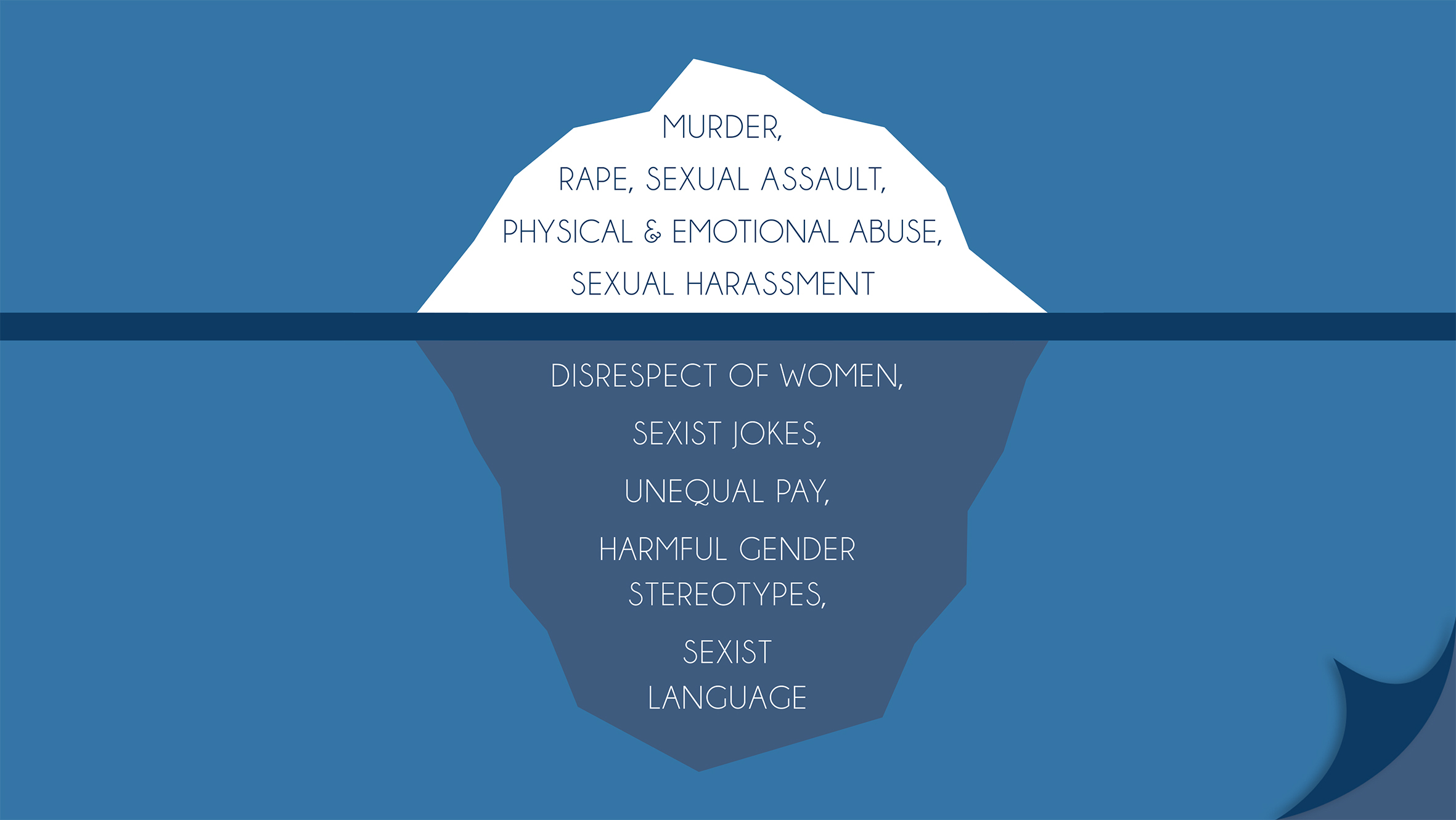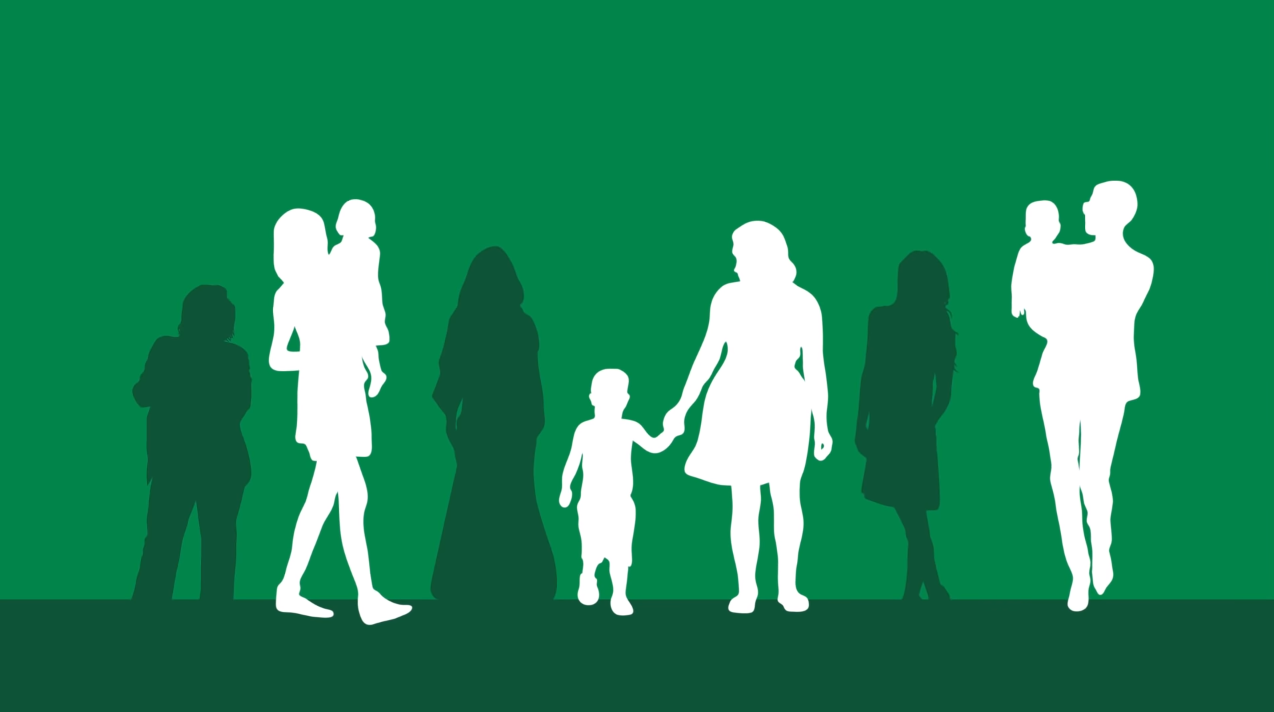Understanding disrespect towards women
Disrespect towards women is anything that makes a woman feel uncomfortable, unsafe, put down, or treated unfairly because she’s a woman. It’s pervasive. It’s targeted. And it often involves sexist and sexually harassing behaviours, like:
- making sexist jokes and comments
- interrupting, talking over, and speaking for women
- pestering a woman who said she ‘isn’t interested’
- thinking or saying women ‘belong’ in certain roles
- using patronising language with women you don’t know (‘sweetheart’, ‘love’).
Where it happens
Unfortunately, disrespect towards women can happen anywhere at any time.
Most Australians think it’s common or very common:
- in bars, pubs (67%)
- on social media (65%)
- in workplaces (65%)
- on the street (57%)
- in sport (55%)
- on public transport (54%)
- at home or with family (50%).
How doing nothing does harm
Research tells us that when disrespect towards women goes unchallenged, it creates a culture in which violence against women is more likely.
Doing nothing about disrespect also:
- sends the message that we’re OK with what was done or said
- encourages people to keep being disrespectful
- makes women feel they should just ‘take a joke’
- stops women being themselves on social media
- makes women avoid places where there are lots of men
- leads women to leave their jobs.
And while not all disrespect leads to violence, all violence starts with disrespect.

Change the story
Watch this video to get a deeper understanding of just how disrespect towards women leads to violence against them in Australia.

This is the story of a boy, and a girl. It's a universal story. And an Australian story.
It's a story that occurs every two minutes, in fact.
A story that happens 657 times a day, every day of the year.
And in every kind of household, and every city and region across Australia.
This is the bigger story behind violence against women.
This story doesn't have a happy ending.
Because this is the story of how gender inequality contributes to the murder of one Australian woman almost every week.
Sounds like a tall tale, right? Let's take things back to the start.
Here's the story of a regular woman.
As a girl, she gets told how pretty she is, never how clever she is.
That if she wears a short dress she's asking for it.
She grows up, and gets used to being harassed by men on the street. That's just the way it is.
Here's the story of a regular man.
As a boy, he learns that women aren't equal to men from a very early age.
Even though both his parents work, on the weekends his mum does the housework while dad watches sport.
When he cries about being bullied at school, his dad tells him to 'stop being such a girl' and just 'punch 'em right back.'
Technically speaking, we'd say that these social norms, practices and structures have shaped both the boy and the girl, creating a society where women are valued less and men are expected to be dominant and in control.
In such a world, disrespect and hostility is excused, and violence against women is far more likely.
But back to our story.
The girl grows up into a woman, the boy grows into a man, and they begin to date.
He jokes that he hopes she "doesn't get fat now that we're together." She's not sure whether she should laugh.
They have the same education and do similar work, yet he earns more money.
He is quickly promoted, like other men in the company, while she gets overlooked.
At home, she does all the household chores, and he takes control of their joint finances, seeing as he's the main breadwinner and all.
When they're at the pub, he puts her down in front of his mates. His friends stay quiet.
In the morning he wakes up and blames the alcohol. And stress. He always has an excuse.
When she gets pregnant, her boss says she can't come back part-time.
After the baby is born, the lack of flexible job opportunities and childcare keeps her out of the workforce.
She is socially isolated and financially dependent on him.
He controls decision making, and her. They are not equals. She is dependent on him for everything.
So she never tells anyone that he has started to hit her.
She doesn't say anything to her family or friends.
She grows more isolated. She has nothing else but him, so she lives with the violence, until their story ends, one way or another.
This story isn't a one-off. It's a story shared by 1 in 4 Australian women who have experienced physical or sexual violence from a current or former partner.
And it's a story of one in five women since the age of 15 who experience sexual violence including rape, one in four emotional violence and one in three women physical violence.
But it's also a story that affects children.
More than half of the women who experience violence had children in their care when the violence occurred.
For victims and perpetrators, violence against women is the conclusion often reached after a life lived in a society where women and men aren't treated equally.
But we – you and I – can change the narrative.
Better education, policies, practices, support and funding can prevent this all-too-common story.
When women and men have equal power, value and opportunities in relationships and in society, violence against women is less likely.
By nurturing caring, respectful and equal relationships, and by creating equitable and inclusive communities, workplaces and institutions, we can create a society of equality and respect where violence against women is unthinkable.
Let's change the story. Because ending violence against women starts with gender equality.
So, what’s the good news? Well, we can all do something about it. And actually, it makes a huge difference when we do.
If you or someone you know is experiencing disrespect or violence towards women, please visit the Help and support page for support services.
